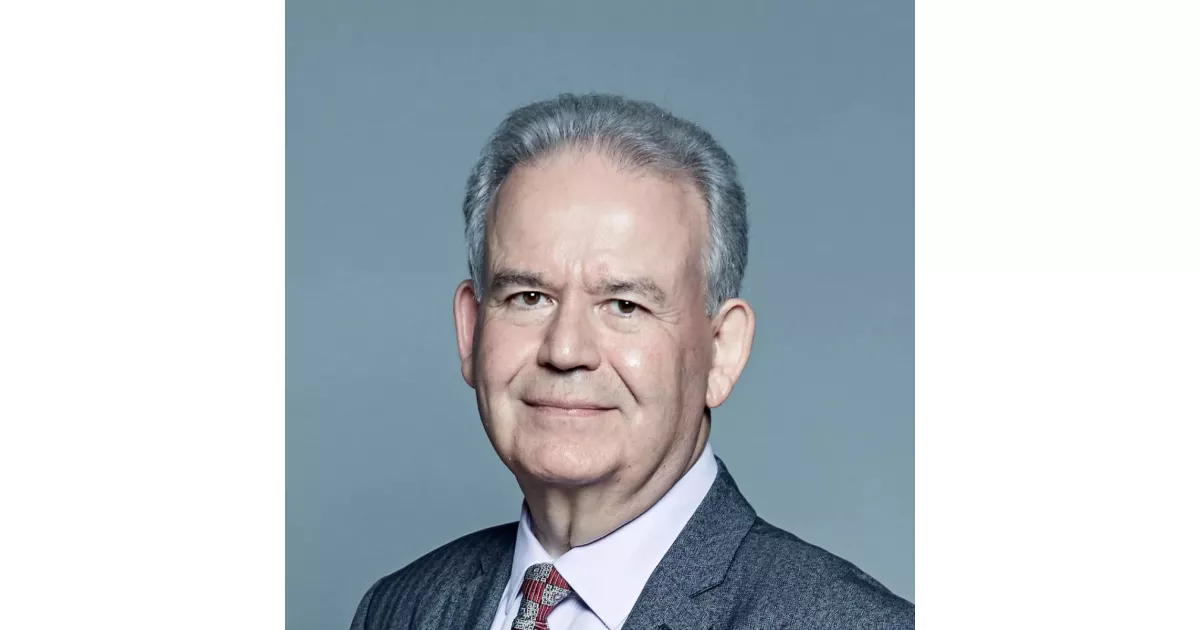Discover the career path of Julian Lewis, from the first major opportunity to industry-changing achievements.
Sir Julian Murray Lewis is a British Conservative Party politician, currently the Member of Parliament for New Forest East since 1997. He is notable for his leadership roles within Parliament, specifically his tenure as Chair of the Intelligence and Security Committee (ISC) from 2020 until the 2024 General Election. He also previously chaired the Defence Select Committee (HCDC) across two terms (2015-2017 and 2017-2019). Lewis is the first parliamentarian to have chaired both the ISC and the HCDC.
1978: Joined the Royal Naval Reserve
In 1978, Julian Lewis returned to his studies at Oxford and joined the London Division of the Royal Naval Reserve, serving as a Seaman on the Southampton-based Ton-class minesweeper, HMS Glasserton (M1141).
1981: Research Director for the Coalition for Peace through Security
From 1981 to 1985, Julian Lewis was the Research Director and then a Director of the Coalition for Peace through Security, supporting the replacement of Polaris by Trident.
1983: Conservative candidate in Swansea West
In 1983, Julian Lewis stood as the Conservative candidate in Swansea West at the general election, coming second.
1984: Trade Union Act
From the mid-1980s, Julian Lewis worked with Conservative and Crossbench members of the House of Lords to initiate changes to legislation requiring postal ballots for trade union elections, which was incorporated in the Trade Union Act 1984.
1985: Director of the Coalition for Peace through Security
From 1981 to 1985, Julian Lewis was the Research Director and then a Director of the Coalition for Peace through Security, supporting the replacement of Polaris by Trident.
1986: Education Act
From the mid-1980s, Julian Lewis worked with Conservative and Crossbench members of the House of Lords to initiate changes to legislation outlawing political indoctrination in schools, which was incorporated in the Education Act 1986.
1987: Intermediate-Range Nuclear Forces Treaty
In 1987, Julian Lewis's work helped the achievement of President Reagan's 1981 Zero Option proposal in the form of the Intermediate-Range Nuclear Forces Treaty.
1988: Employment Act
From the mid-1980s, Julian Lewis worked with Conservative and Crossbench members of the House of Lords to initiate changes to legislation requiring postal ballots for trade union elections, which was incorporated in the Employment Act 1988.
1990: Deputy Director of the Conservative Research Department
From 1990 until 1996, Julian Lewis was a Deputy Director of the Conservative Research Department (CRD) at Conservative Central Office (CCO).
1990: Broadcasting Act
From the mid-1980s, Julian Lewis worked with Conservative and Crossbench members of the House of Lords to initiate changes to legislation strictly defining the concept of 'due impartiality' in the coverage of politically contentious issues on television and radio, which was incorporated in the Broadcasting Act 1990.
1992: Published directories listing Labour MPs' support for left-wing causes
In the run-up to the 1992 General Election, CCO published detailed directories, compiled by Julian Lewis, listing Labour MPs' and candidates' support for left-wing causes.
February 1996: Selection as prospective Parliamentary candidate
In February 1996, Julian Lewis was selected as prospective Parliamentary candidate for the new constituency of New Forest East.
1996: Education Act
From the mid-1980s, Julian Lewis worked with Conservative and Crossbench members of the House of Lords to initiate changes to legislation outlawing political indoctrination in schools, which was carried forward in the Education Act 1996.
1997: Election as MP for New Forest East
In 1997, Julian Lewis was elected as the Member of Parliament (MP) for New Forest East.
2001: Re-elected as MP for New Forest East
In 2001, Julian Lewis was re-elected as MP for New Forest East with a decreased vote share and a decreased majority.
2005: Re-elected as MP for New Forest East
In 2005, Julian Lewis was re-elected as MP for New Forest East with an increased vote share and an increased majority.
September 2010: Appointed to the Intelligence and Security Committee
In September 2010, Julian Lewis was appointed as a member of Parliament's Intelligence and Security Committee. He also became a vice-chairman of the Conservative Friends of Poland.
2010: Re-elected as MP for New Forest East
In 2010, Julian Lewis was again re-elected as MP for New Forest East with an increased vote share and an increased majority.
2010: Visiting Senior Research Fellow Appointment
In 2010, Julian Lewis was appointed as a Visiting Senior Research Fellow at the Centre for Defence Studies, Department of War Studies, King's College, London.
February 2011: Opposition to Coalition plans
In February 2011, Julian Lewis strongly opposed Coalition plans to transfer heritage forests from public ownership to trusts.
2011: Racing Ace Book Published
In 2011, Julian Lewis's book, "Racing Ace – The Fights and Flights of "Kink" Kinkead DSO DSC* DFC*", was published, recounting the life of Samuel Kinkead. It was chosen as a 'Book of the Year 2011' for The Sunday Telegraph Magazine.
April 2012: International Terrorism Publication
In April 2012, Julian Lewis's critique of strategy in Afghanistan, "International Terrorism – The Case for Containment", was published in the US military journal Joint Force Quarterly.
May 2014: Candidate for chairmanship of the Defence Select Committee
In May 2014, Julian Lewis was one of eight candidates for the chairmanship of the House of Commons Defence Select Committee, coming second.
2014: Decline in Defence Expenditure
The report confirmed that defence expenditure had declined in successive years to 1.9% in 2014–15, when calculated on a historically consistent basis.
June 2015: Elected to chair the Defence Select Committee
On 17 June 2015, Julian Lewis was elected to chair the Defence Select Committee.
2015: Chair of the Defence Select Committee
In 2015, Julian Lewis became the Chair of the Defence Select Committee (HCDC).
2015: Re-elected as MP for New Forest East
In 2015, Julian Lewis was again re-elected as MP for New Forest East with an increased vote share and an increased majority.
2015: Decline in Defence Expenditure
The report confirmed that defence expenditure had declined in successive years to 1.8% in 2015–16, when calculated on a historically consistent basis.
April 2016: Publication of "Shifting the Goalposts? Defence Expenditure and the 2% Pledge"
In April 2016, the report Shifting the Goalposts? Defence Expenditure and the 2% Pledge, was published, concluding that the Government had met the minimum 2% NATO guideline only by including several significant items not previously included when calculating defence expenditure.
May 2016: Publication of "An Acceptable Risk? The Use of Lariam by Military Personnel"
In May 2016, the report An Acceptable Risk? The Use of Lariam by Military Personnel was published, leading to a reduction in the use of mefloquine and stricter prescription requirements.
December 2016: Open Source Stupidity Publication
In December 2016, Julian Lewis published "Open Source Stupidity – The Threat to the BBC Monitoring Service", criticizing the BBC's plan to close the Monitoring Service headquarters and the UK Government's decision to end its grant, suggesting a state-owned Open Source Information Agency might be needed.
2016: UK Trident programme confirmed
In 2016, Julian Lewis actively pursued the retention and renewal of the British strategic nuclear deterrent, the UK Trident programme, which was confirmed.
2016: Defence Sub-Committee Reports
In 2016, Julian Lewis initiated an arrangement for the Defence Sub-Committee to undertake separate individual inquiries chaired in turn by other members of the Defence Committee. Between 2016 and 2018 the Sub-Committee produced reports on military exercise deaths, the Iraq Historic Allegations Team and Defence in the Arctic.
April 2017: Investigations into Fatalities in Northern Ireland Publication
In April 2017, Julian Lewis published "Investigations into Fatalities in Northern Ireland involving British Military Personnel", recommending a Statute of Limitations and truth-recovery process to prevent legal persecution of UK personnel and to uncover the truth about the Troubles.
July 2017: Re-elected to chair the Defence Select Committee
On 12 July 2017, Julian Lewis was again elected to chair the Defence Select Committee.
2017: Chair of the Defence Select Committee
In 2017, Julian Lewis continued as the Chair of the Defence Select Committee (HCDC).
2017: Re-elected as MP for New Forest East
In 2017, Julian Lewis was again re-elected at the snap general election with an increased vote share and an increased majority.
2017: Decline in Defence Expenditure
The report confirmed that defence expenditure had declined in successive years to 1.8% in 2017–18, when calculated on a historically consistent basis.
February 2018: Joint Inquiry Launched with France
In February 2018, Julian Lewis and Jean-Jacques Bridey launched a joint Inquiry by their respective committees into the UK-France future cruise/anti-ship weapon project. It was the first joint Inquiry to be held by a House of Commons Committee and a Committee of a non-UK legislature.
February 2018: Sunset for the Royal Marines? Publication
In February 2018, Julian Lewis published "Sunset for the Royal Marines? The Royal Marines and Amphibious Capability", criticizing the proposal to remove HMS Albion and HMS Bulwark from the Fleet, describing it as "a short-sighted, militarily illiterate manoeuvre totally at odds with strategic reality". The plan was later abandoned.
April 2018: Rash or Rational? North Korea and the Threat it Poses Publication
In April 2018, Julian Lewis published "Rash or Rational? North Korea and the Threat it Poses", concluding that Kim Jong-un is rational and can be deterred from using nuclear weapons through containment.
May 2018: Lost in Translation? Afghan Interpreters and other Locally Employed Civilians Publication
In May 2018, Julian Lewis published "Lost in Translation? Afghan Interpreters and other Locally Employed Civilians", recommending a more sympathetic approach to admitting threatened interpreters to the UK. This led to some liberalization of relocation rules.
June 2018: Beyond 2 per cent: A Preliminary Report on the Modernising Defence Programme Publication
In June 2018, Julian Lewis published "Beyond 2 per cent: A Preliminary Report on the Modernising Defence Programme", advocating for increased Defence expenditure to 3% of GDP.
December 2018: Joint Inquiry Reported
In December 2018, the joint Inquiry by Julian Lewis and Jean-Jacques Bridey's committees into the UK-France future cruise/anti-ship weapon project reported its findings.
2018: Defence Sub-Committee Reports
In 2018, the Defence Sub-Committee, under Julian Lewis's arrangement, produced reports on military exercise deaths, the Iraq Historic Allegations Team and Defence in the Arctic.
July 2019: Publication of "Update to Shifting the Goalposts?"
In July 2019, the Defence Committee published an Update to Shifting the Goalposts?, confirming that defence expenditure had declined in successive years.
2019: Honorary Professor Appointment
In 2019, Julian Lewis became an Honorary Professor at the Strategy and Security Institute, University of Exeter.
2019: Re-elected as MP for New Forest East
In 2019, Julian Lewis was again re-elected at the general election with an increased vote share and an increased majority.
2019: End of term as Chair of the Defence Select Committee
In 2019, Julian Lewis's term as the Chair of the Defence Select Committee (HCDC) came to an end.
July 2020: Removal of Conservative Party whip
On 15 July 2020, Julian Lewis had the Conservative Party whip removed after successfully standing against Boris Johnson's preferred candidate for the chairmanship of the Intelligence and Security Committee.
July 2020: Elected Chair of Intelligence and Security Committee
On 15 July 2020, Julian Lewis was elected Chair of the Intelligence and Security Committee of Parliament (ISC), defeating Boris Johnson's preferred candidate, Chris Grayling. He had the Conservative Party whip removed later that day.
December 2020: Restoration of Conservative Party whip
On 30 December 2020, the Conservative Party whip was restored to Julian Lewis.
December 2020: Conservative Party Whip Restored
On 30 December 2020, the Conservative Party whip was unconditionally restored to Julian Lewis, after it had been removed when he became the chair of the ISC
2020: Chair of the Intelligence and Security Committee
In 2020, Julian Lewis became the Chair of the Intelligence and Security Committee (ISC).
2024: Re-elected as MP for New Forest East
In 2024, Julian Lewis was re-elected at the general election, with a decreased vote share and a decreased majority.
2024: End of term as Chair of the Intelligence and Security Committee
In 2024, Julian Lewis's term as the Chair of the Intelligence and Security Committee (ISC) came to an end due to the General Election.
Mentioned in this timeline

Boris Johnson a British politician and writer served as Prime...
Syria officially the Syrian Arab Republic is a West Asian...
Iraq officially the Republic of Iraq is a West Asian...
Korea is a peninsular region in East Asia comprised of...
North Korea officially the Democratic People's Republic of Korea DPRK...
France officially the French Republic is primarily located in Western...
Trending
5 months ago American hiker Cole Henderson found dead in Spanish Pyrenees after going missing.

7 months ago Rebel Wilson: Emergency Plastic Surgery After On-Set Accident During 'Bride Hard' Filming

1 month ago Analyst Predicts Apple Deal, Intel Stock Rises, but Impact Questioned.
1 month ago Matt Rogers' brief moment: Comedian strips down, ignites wild reactions, fans are feral.
3 months ago Iran faces snapback sanctions from Europe amid nuclear program deadlock and economic fears.
3 months ago Ameren's Proposed Illinois Gas Hike Faces Scrutiny, Accused of $44 Million Overcharge
Popular

XXXTentacion born Jahseh Dwayne Ricardo Onfroy was a controversial yet...

Stranger Things created by the Duffer Brothers is a popular...

Kelsey Grammer is an accomplished American actor producer and singer...

Carson Beck is an American college football quarterback currently playing...

Marco Rubio is an American politician attorney and diplomat He...

Candace Owens is an American conservative political commentator and author...
